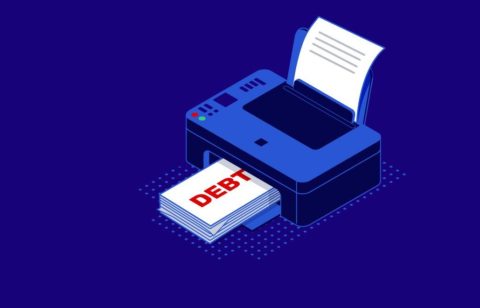In a perfect world, when you were born, your parents began putting away money every month for that joyous day when you would begin college so you could avoid graduating from college with debt. However, for many, this is not reality. With the recent recession and the shrinking of the Middle Class, fewer and fewer parents are able to contribute any significant amount of money to a college fund. Add to that skyrocketing tuition, and it’s no real wonder that the national student loan debt has surpassed $1.4 trillion with no indication of slowing.
Typically, students don’t need to begin paying off their student loans until six months after they stop going to school or they graduate, so there’s an out-of-sight/out-of-mind effect to these loans. Moreover, presumably, a college education is going to mean college graduates will get a good-paying job upon graduation and will be able to pay off their student loans, right?
Probably not. In 2016, the average college student graduated with $37,172 in student loans hanging over his or her head. While the job market is currently positive, the latest jobs report shows that unemployment for those over the age of 25 with a bachelor’s degree or higher is at 2.4 percent, and unemployment for recent college graduates overall (which adds in those who are under 25 when they graduate) is at 5.6 percent. Still, for many, their starting jobs are not in their field of study, and thus have lower starting salaries.
So, while it may be tempting to rack up loans and worry about them later, it’ll be the most beneficial down the line to take action before you begin college and avoid taking out student loans altogether if you can.
Look for scholarships and grants to avoid graduating from college with debt

It may be a time-intensive process, but it’s for that very reason that so many scholarships have so few applicants. At www.collegeboard.org, a handy search engine makes the process a little less daunting. Remember, scholarships and grants are like free money for your tuition; you don’t have to pay them back.
See if your employer offers tuition reimbursement
If you are currently working, ask your employer if tuition reimbursement programs are available for employees. An increasing number of companies are making this part of their benefits package; and, in some cases, they may offer it to spouses or children of employees as well.
Go to an in-state college
Tuition is usually less at colleges in your own state.
Set up a crowdfunding page
This is a relatively new way to get money for college. It may not be for everyone, but some have found success by setting up a page at gofundme.com or other crowdfunding sites and sharing it with friends or family. Keep in mind that some of these sites will keep a percentage of the donations as a fee.
Take college level courses in high school
Some high schools work with local colleges to offer high school courses that earn college credit. There may be fees associated with these, but they’re typically less than the same course in college.
Attend a community college for the first year or two
As a way to save money on tuition, many students are turning to their local community colleges for their basic courses, such as English, math, science, and history, all of which most majors require. Community colleges are usually significantly less expensive than the average 4-year college. Before you do this, however, make sure your credits will transfer to your intended 4-year school, because some courses may not.
Look for accelerated programs
Some majors may be “degree in three” at some colleges, which could cut a year off your tuition and room and board.
Ask your college about installment plans
Many colleges allow students or their parents to pay tuition in installments throughout the school year. There may be an upfront fee of up to 3%, but there’s usually no interest charged. You can pay for tuition, room, and board this way.
Live at home during college
At most 4-year colleges, room and board ranges from $6,000 to $9,000 per year, so living at home with mom and dad would most likely save you a lot of money.
Take a gap year to avoid graduating from college with debt
Many people take a “gap year” or a year off after high school graduation to travel, but you can take it to make money for college too. If you’re considering a gap year, still apply to colleges and choose the one you want to attend. Once accepted, notify your college that you want to defer your admittance for a year. You’ll have to reapply for the FAFSA the following year, and if granted any scholarships or grants, you should check to ensure you’ll still receive them.
Enroll part-time
Most people want to get their degree in as little time as possible, but part-time tuition is cheaper, and you may be able to work and pay it as you go.
Take AP classes in high school
If you’re able, take as many Advanced Placement or AP classes as you can in high school. By taking AP exams when you’re finished with the courses, you may be able to send these scores to your college for credit.
Getting a good education doesn’t mean you have to saddle yourself with debt for the next 10 years. With dedication and some careful planning, it is possible to avoid graduating from college with debt. College graduation should be a time of fresh starts and new beginnings, not worrying about paying off debt.







